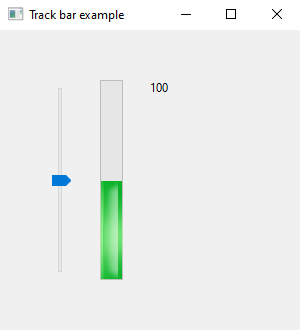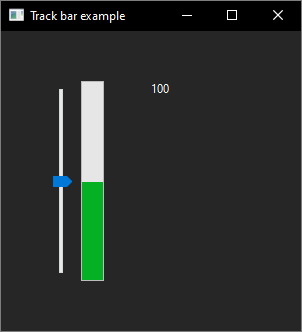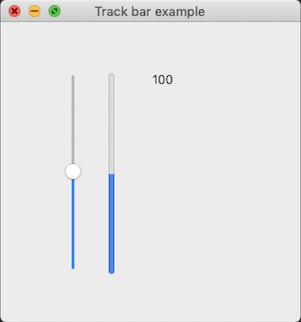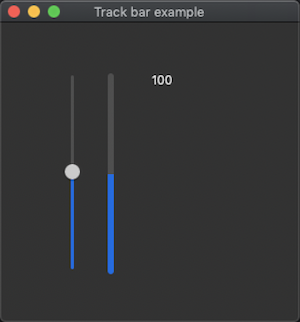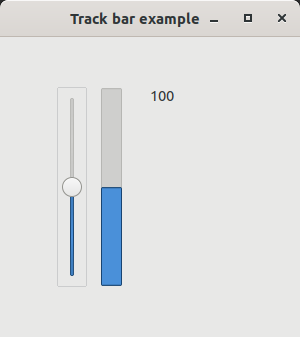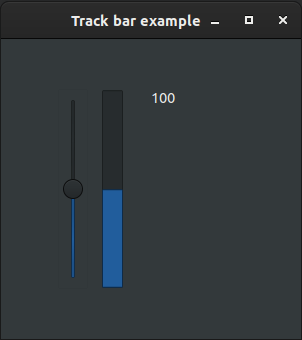The following code example demonstrate the use of track_bar control.
#include <xtd/xtd>
class form1 :
public form {
public:
form1() {
client_size({300, 300});
text("Track bar example");
progress_bar1.location({80, 50});
progress_bar1.maximum(200);
progress_bar1.orientation(forms::orientation::vertical);
progress_bar1.parent(*this);
progress_bar1.size({23, 200});
label1.location({150, 50});
label1.parent(*this);
track_bar1.location({50, 50});
track_bar1.maximum(200);
track_bar1.auto_size(false);
track_bar1.orientation(forms::orientation::vertical);
track_bar1.parent(*this);
track_bar1.value_changed += [&] {
progress_bar1.value(track_bar1.value());
label1.text(ustring::format("{}", track_bar1.value()));
};
track_bar1.value(100);
track_bar1.tick_style(forms::tick_style::none);
track_bar1.size({25, 200});
}
private:
};
int main() {
application::run(form1());
}
The xtd namespace contains all fundamental classes to access Hardware, Os, System,...
Definition: system_report.h:17


